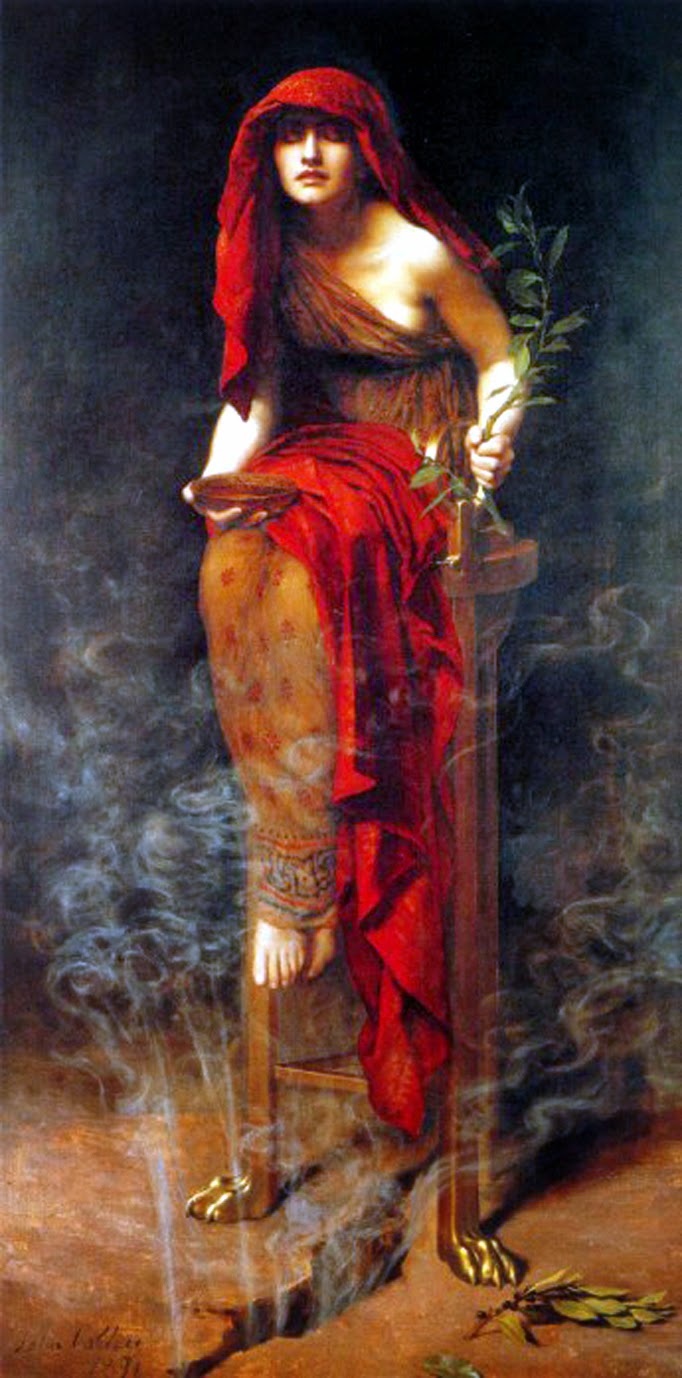Dating back to
1400 BC, the Oracle of Delphi was the most important shrine in all Greece Delphi was considered to be the omphalos - the center
(literally navel) of the world.
People came from
all over Greece
 |
| The Delphic Sibyl at Oracle of Delphi and the Strange Fumes |
Arguments over
the correct interpretation of an oracle were common, but the oracle was always
happy to give another prophecy if more gold was provided. A good example is the
famous incident before the Battle of Salamis
 |
| The Pythia, commonly known as the Oracle of Delphi, was the priestess at the Temple of Apollo at Delphi |
The lack of a
strict religious dogma associated with the worship of Greek gods also
encouraged scholars to congregate at Delphi ,
and it became a focal point for intellectual enquiry, as well as an occasional
meeting place where rivals could negotiate.
 |
| Oracle of Delphi |
This documentary
Secrets of the Ancient World: Oracle of Delphi
Secrets Revealed is available on DVD from Amazon Books.
History Channel The Oracle of Delphi by RockyKhurasani

No comments:
Post a Comment